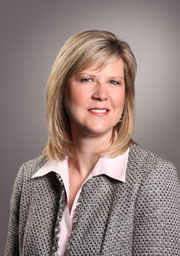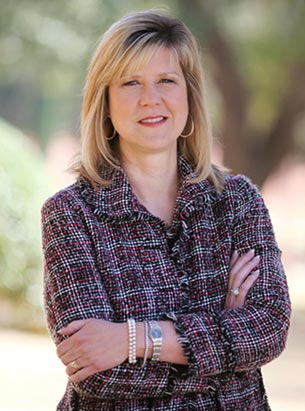Concluding the search began in June by a committee of faculty, students, administrators, and alumni, the Board of Trustees has unanimously approved Dr. Elizabeth Davis, Provost and Dean of Students at Baylor University, as Furman’s next university president. The first female president in Furman’s long history, Davis represents the possibility of change, of both treasuring and moving beyond a complex past, and of creating an institutional structure in which categories like race, gender, and sexuality are not barriers to achievement. A nationally-recognized accounting professor, Davis brings with her the skills and experience to confront the problems that Furman University currently faces — questions about the viability of various university programs, maintaining student enrollment, addressing the budget deficit, and articulating the value of the liberal arts amidst significant changes in higher education. The announcement of Davis’s presidency should inspire hope for the university’s future and a recommitment to what a Furman education means to current and future students.
This announcement, however, does not solve our problems. We cannot let the glare of the honeymoon period — the awe, hope, and spectacle of a new president’s installation — distract us from the financial and philosophical difficulties that Furman and the undergraduate liberal arts model currently face. This kind of apathy is especially dangerous for students. Caught up in the excitement of the college experience, it’s easy to lose sight of our seemingly insignificant daily lives affect the larger institutional developments at the university where we find ourselves. For some students, Davis — along with President Rodney Smolla and Interim President Carl Korht — will be the third acting president to lead during their time at Furman. For younger students, Davis’ tenure represents the promise of certainty and stability, a sure future, and a solution to our problems. This context and the overwhelming campus reaction to Davis’s hiring suggests that Furman’s stability is only affected by major events like the resignation or hiring of a president, a stability separate from the daily decisions made by the administration, the work done by staff members, the quality of education provided by faculty during every class period, and the actions and regular lives of students.
This is not the case. Furman is not a thing independent of our beliefs and choices. Furman is the sum of our lives in community, the product of our differences, and every dilemma is an obstacle that we face together.
Furman’s president has the responsibility to shape policy, navigate differences of opinions, and represent the university to those outside the campus gates. With these responsibilities comes the power to chart Furman’s course into the future and craft holistic solutions to systemic problems. But this power is far from limitless. Davis received the unanimous approval of the Board of Trustees, and members of the search committee indicated that Davis was the clear choice among candidates, her skills and experiences uniquely suited to the position. And yet, not only the president but all of us share in the responsibility of facing Furman’s challenges. These problems are our problems, and expecting one person to solve those problems for us prevents us from realizing our own roles in maintaining and improving this university.
We can continue to address the quandaries we face as a university by embracing Davis as a member of our community; by communicating to her our diversity of experiences, backgrounds, and perspectives; and by working with her to create and implement solutions to the challenges before us. These solutions should not be informed by a single perspective or group, but should reflect the diversity of opinions on campus, differences that should not be minimized or ignored. Our differences do not undermine our unity; they give meaning to it. These solutions — like the Board of Trustees’s recent decision to eliminate the men’s golf program — will at times require sacrifices, but with Davis’s leadership, Furman has the opportunity to implement these solutions in ways that minimize their harm and maximize their effectiveness. The historic nature of this announcement should not blind us to the work left to do but should encourage us to recommit to working toward our goals.

